Substance Abuse Soars During COVID
Worldwide health crisis is a double whammy for those struggling with substance abuse; Atlanta’s Jewish social services see dramatic increases in demand for recovery assistance.
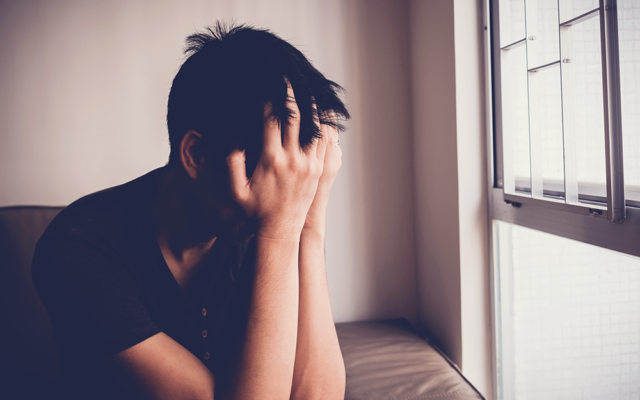
The stories are recurring and heart-wrenching. A Jewish student already struggling to adjust to college and deal with depression finds that the global pandemic exacerbates his challenges. He turns to marijuana to cope and can’t stop. His parents, “who don’t know what to do,” call HAMSA (Helping Atlantans Manage Substance Abuse), a program of Jewish Family & Career Services.
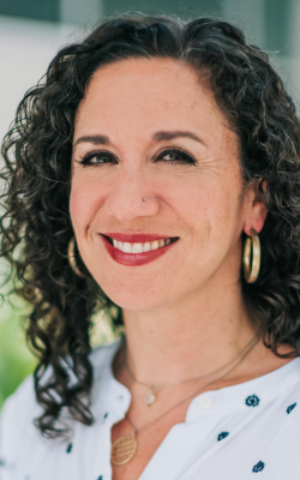
“Everyone feels stress differently,” said HAMSA program manager Leslie Lubell, who is in long-term recovery herself. The difference between addiction and regularly having a drink or smoking “weed” is being dependent on the substance and not being able to get through a day without it, Lubell explained.
“There are plenty of people drinking during the pandemic to make them feel better.” But they may know when to stop; those with an addiction are unable to quit using or drinking on their own, she said.
The American Medical Association’s issue brief last updated Oct. 31 reports an increase in opioid- and other drug-related overdose and other concerns during COVID.
“In addition to the ongoing challenges presented by the COVID-19 global pandemic, the nation’s opioid epidemic has grown into a much more complicated and deadly drug overdose epidemic,” according to the AMA.
“I must hear about a death every week” from drug overdoses, Lubell said. “Calls to HAMSA have exponentially increased. There’s been a drastic increase over the same period last year.”
The main problem, she says, is that the isolation of COVID is keeping those dealing with or recovering from substance abuse, like herself, from staying connected and holding each other accountable. “Part of what works is peer-centered recovery. People start to see you face-to-face. They can see how you are really doing. They can see if you are not OK and pick up on that.”
Lubell knows of two Jewish people struggling with addiction who got out of a six-week residential treatment program during the pandemic only to discover “the world had completely changed during the time they were in rehab.” They had a difficult time coping without the in-person support they needed to stay on track, so they began to relapse, she said. “When they got out, everything they were taught to do they can’t do.”
Those keys to success include building a network of people in recovery, joining a 12-step, Alcoholics Anonymous or other peer support group, and visiting an outpatient treatment program to continue to heal effectively. Family support groups also can’t meet. “You can do Zoom, but it’s not like sitting across the table from each other having a conversation.”
Need for Connection
Treatment programs have started to reopen because they see it as a calculated risk, Lubell said. “The patients can’t survive on their own. They can do a COVID test and wear a mask and come in” and it will help people with a substance abuse disorder recover.
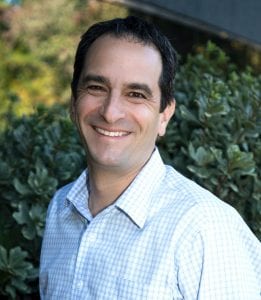
The Berman Center treatment facility only closed during the mandatory shelter-in-place period at the beginning of the pandemic, said CEO Justin Milrad. At least 20 percent more clients have reached out for services. “Our phone has not stopped ringing.” To keep up with the need for in-person treatment during COVID, it added 10 people to its staff and another 2,000 square feet to its Dunwoody center with plans for another 2,500 square feet soon. The additions allow for more rooms to space out patients into smaller groups, Milrad said. “We provide mental health services, so we are considered first responders.”
He said teens who fared well at the beginning of the pandemic had a tougher experience as time went on. “Community is the secret sauce that helps people get thru this difficult time.” The group treatment sessions provide an outlet to communicate and connect with others, work on coping skills, reduce loneliness, provide support and lift each other up, said Milrad, who is also president of The Blue Dove Foundation. It offers resources for education, awareness and outreach for addiction and mental health.
While COVID has broken down some of the shame and stigma associated with talking about and addressing addiction, addicts feel more supported to be truthful about their struggles. “Depression and anxiety are through the roof,” Milrad said.
Fear of the unknown, worry about their personal health and the health of loved ones; changes in eating and sleeping; and difficulty concentrating all contribute to more people using alcohol and drugs as a coping mechanism, he added.
“If it’s left untreated, it can progressively get worse … Treatment for those people who seek out community and support are generally doing pretty well considering. Community and connection are very important factors to help people get through this difficult time of COVID.”
Rabbi Eliyahu Schusterman, who created Jeff’s Place addiction recovery, is not seeing the same kind of struggle during COVID by those who are in recovery. Perhaps that is because they were further along with their recovery. He compared the pandemic for most of those he works with to weightlifting in which the body pushes back against a heavy weight and becomes stronger.
He said he knew two recovering addicts who early on were struggling with depression and feeling down, but they used the tools they have learned in their recovery process to push through the hardships.
“People in recovery are used to adversity. They built up an armor with commitment and resolve to overcome the challenge as it presents itself and become stronger to that,” Schusterman said.

Jeff’s Place, which began at Chabad Intown two years ago, had been offering two in-person AA 12 Step meetings on Sundays. When the pandemic hit, they went online. More recently, as restrictions have relaxed, it has become a hybrid of online and in-person socially distanced.
In addition, since the start of the pandemic, Rabbi Schusterman has been offering online classes on the 12 Steps through a Jewish lens. These classes are offered for those in recovery as well as a second group for loved ones of addicts.
The principles taught by AA in the 12 Steps provide tools for recovering addicts to deal with the pandemic, the feelings of anxiety and fear of the future, allowing them to turn to their faith in G-d to help them through rough patches, according to the rabbi, who also founded and directs Chabad Intown.
Concepts such as “I don’t have to be in control in everything,” or “take one day at a time” offer very real solutions to the isolation and uncertainty of a health crisis.
Schusterman admits that new addicts tend to relapse early in the recovery process, “but if the individual perseveres, they often are able to maintain sobriety after the first or multiple relapses.” That’s when they are successful through the AA programs such as offered through Jeff’s Place. “People who maintain an investment in their recovery tend to do well. People who attend meetings and are committed to the 12 Step process and work the program” are more invested and serious, he said.
The rabbi added that he has a lot of respect and identifies with people who “are engaged in the struggle of life to be a better person. Their internal experiences are ultimately rooted in a spiritual path.”
He said of addiction, “it’s a disease; it is real. I want to help do my part. I want them to feel comfortable and not feel shame and stigmatized” seeking help.
One of those who visited Jeff’s Place for its AA support groups before COVID is Ronnie Galanti of Sandy Springs. Although today he is secure in his recovery, having been sober since 2002, he sees the struggles of those he sponsors through the 12 Step program, providing one-on-one support for those in early recovery. “One I’ve been working with has been sober three to four months. He had been in treatment two years ago and relapsed six or seven months ago. He found it difficult to stay sober,” Galanti said.
“The in-person connection, the fellowship, is a vital part for those in recovery, but has been so difficult during COVID. I have noticed through my personal interactions and in conversation with others in recovery, since COVID, relapse is occurring more often, and meeting attendance is down,” he continued.
“One of the worst scenarios for maintaining sobriety is isolation. It creates hopelessness, despair and depression as well as limits accountability, which is so important to maintaining sobriety. For an addict, when depression and isolation sets in, they think a drink or getting high will solve the problem, … but it becomes the problem.”
Galanti said it is important for recovering addicts to socialize and be with people like themselves to break the pattern and realize they’re not alone or unique. That component of recovery was “yanked out from beneath us by COVID,” Galanti said.
“Before COVID, anyone struggling with addiction could attend 12 Step programs every hour on the hour” throughout Atlanta with meetings attended by anywhere from 20 to 100 people, he said. After the meetings, the fellowship began with addicts seeking out others to talk over coffee or lunch and help each other through the process.
“COVID restrictions were a major blow to recovery fellowship but many meetings have realized how detrimental and harmful being closed has been and are making great strides to safely reopen.” Galanti attended at least three meetings a week in person; now his “attendance and participation is all done virtually, which is helpful, but not the same.”
Business is Booming
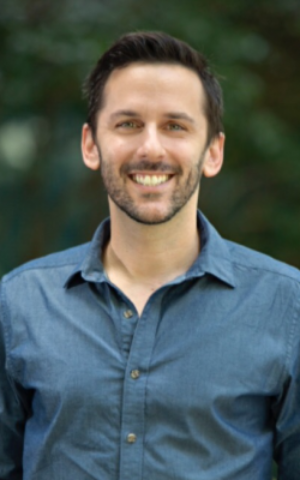
Daniel Epstein is a psychotherapist and director of client services at The Berman Center. He agreed that those who are connected in a 12 Step program and have a strong sense of recovery are faring much better than those who are “white-knuckling it” by themselves.
“We’re the busiest we’ve ever been,” said Epstein, who has been with the outpatient treatment center for three years and in practice for 13. “I’ve never gotten so many inquiries and families reaching out. It has a lot to do with employment and financial reasons, connection and loneliness. … Some feel depressed.
“They do not have anything to do. Teenagers are all day on Zoom and bored and not connected socially. People do not have things to look forward to,” he said. For instance, a family vacation or a celebration such as a wedding. “It feels like their life is on hold and uncertainty for when this all ends. Uncertainty causes them anxiety about what the world is going to be like, what jobs are going to be like.”
The pandemic has worsened the opioid crisis with overdoses increasing 30 to 40 percent, according to Nora Volkow, director of the National Institute on Drug Abuse.
In addition to overdoses, she reported there have been increases in patients relapsing that had already achieved recovery.
Doctors are especially concerned that coronavirus lockdowns are leading to an increase in intentional overdoses and other suicide attempts, Volkow said. The rising unemployment rate is also contributing to the problem by further isolating people, she said.
“Without a doubt, more people are using and more people are relapsing,” said Epstein, who is also a co-founder of The Blue Dove Foundation. The danger of overdose after periods of sobriety is “no man’s land. They risk dying from a relapse. It’s a very scary place to be.”
He knows of two young men who took their own lives during the pandemic, one of whom was Jewish.
In the past, when people were around others, they could be saved if someone noticed something unusual or there was an overdose, but now that they are homebound, there is no one to help, Epstein said.
The days blend into each other when you are stuck home and isolated, Epstein continued. “I know they are exceptionally bored. Every day kind of feels the same. They wake up in their bedroom or house and socialize from their bedroom and wind down in their bedroom. The radius of people’s lives has shrunk.”
More than 40 states, including Georgia, have reported increases in opioid-related mortality during the pandemic, as well as ongoing concerns for those with a substance use disorder, the AMA brief stated.
The Centers for Disease Control and Prevention in Atlanta on Oct. 7 also cited concerns about alcohol abuse during COVID. Among other complications, “drinking alcohol weakens the body’s ability to fight infections, increasing the risk of complications and making it harder to get better if you are sick. Alcohol use can also increase the risk of acute respiratory distress syndrome and pneumonia, which are sometimes associated with COVID-19.”
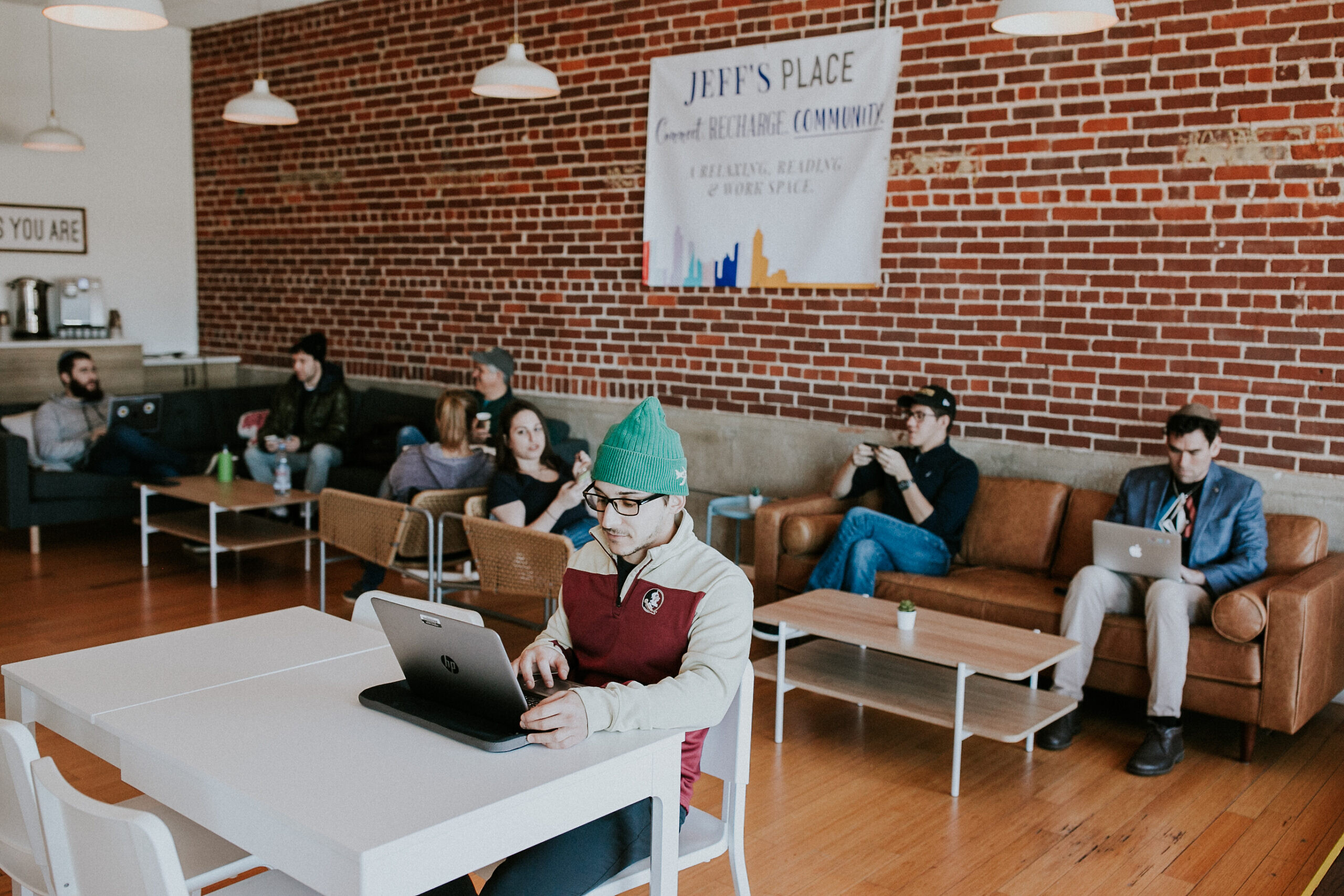
In an article in Georgia Health News last month, state public health officials reported a troubling increase in overdose cases in hospital emergency rooms.
‘‘Recovery coaches,’’ who help substance abuse patients in emergency rooms and on a consumer hotline, have seen an increase in people needing help during recent months, the Georgia Council on Substance Abuse told Georgia Health News.
“Not only has the volume increased, the intensity of the encounters has increased, as well,’’ said Neil Campbell, executive director of the organization. “Our coaches are reporting just some devastating life situations that their peers in the EDs [emergency departments] are experiencing that have been compounded by COVID.’’
The people who call needing help “are reeling from isolation due to COVID, the economic downturn and the social and racial justice issues happening in their communities,’’ she added. “The duration, intensity and volume of the calls have all increased.’’
In addition to the trauma cases are increases in alcohol use, which are linked to stress and mental health issues created by the pandemic, the health site reported. Rising unemployment and divisive social issues are playing into the general anxiety among Americans, the health site learned.
U.S. adults have sharply increased their consumption of alcohol during the pandemic shutdown, with women increasing their heavy drinking episodes (four or more drinks within a couple of hours) by 41 percent, according to a new RAND Corporation study reported Sept. 29.
A national survey found that the overall frequency of drinking alcohol increased by 14 percent among adults over age 30, compared to the same time last year, Georgia Health News reported. The increase was 19 percent among all adults aged 30 to 59, 17 percent among women, and 10 percent among non-Hispanic white adults.
George Koob, director of the National Institute on Alcohol Abuse and Alcoholism, told CNN that the U.S. has seen similar increases in alcohol consumption during other times of crisis.
If the experience after other public health emergencies and disasters are any indication, Hurricane Katrina and 9/11 for example, the need for substance abuse services will continue to be overwhelming.
“Consensus is emerging among disaster researchers that psychological disorders and substance abuse increases in the aftermath of both man-made and natural disasters,” according to a 2016 CDC report. “Exposure to a disaster can entail physical threats to life and post-disaster behavior and re-adjustment problems (dealing with loss of home, friends, or family). These events can increase the risk of substance abuse, such as extensive drinking or drug use, as a coping mechanism.”
Lubell summed up the findings of studies by the CDC and U.S. Department of Health and Human Services. The studies followed the impact on a city of a huge national disaster, Lubell explained. Drug or alcohol related incidents increased immediately after the crisis and then leveled off and then down the road spiked again, she said.
The impact of the pandemic on drug and alcohol abuse may not be known for another year or longer, Lubell said. “It’s a hard thing to measure. I don’t think we’ll know the true impact of how the pandemic affects people for a while. Addiction does not happen overnight. You can live with an addiction for a while before you decide to do something about it. It takes a while before you realize you want help. People can live with it for a while in a state of denial or without consequences. They often don’t change their behavior until it has a negative impact on their life, it’s impacting their jobs, personal relationships, they’ve tried to stop on their own and can’t.”
If you or someone you care about is starting to use alcohol or other substances, or is increasing their use during the COVID-19 pandemic, here are a few suggestions that may help:

From Rabbi Schusterman of Jeff’s Place:
• Help is out there through organizations such as Jewish Family & Career Services and Jeff’s Place.
• There is hope. A lot of people are in recovery and have done it successfully.
• You are not alone.
• Set goals. It will give you purpose and meaning in your every day.
• Finding a relationship with God will give you purpose and meaning.
From Daniel Epstein of The Berman Center and The Blue Dove Foundation:
• Join a youth group or athletic team.
• Find outdoor activities for exercise.
• Take up a healthy hobby such as cooking with meal prep that keeps you eating healthy.
• Limit social media use (phone chatting with a friend is fine, but not losing oneself in Facebook).
• Establish a routine, a schedule.
Or for more general information on the issue:
• www.cdc.gov/coronavirus/2019-ncov/daily-life-coping/stress-coping/alcohol-use.html
• www.drugabuse.gov/drug-topics/comorbidity/covid-19-resources
- Roni Robbins
- wellness
- Community
- pandemic
- COVID-19
- Coronavirus
- COVID
- Atlanta
- Social Services
- hamsa
- JF&CS
- Jewish Family and Career Services
- Leslie Lubell
- American Medical Association
- social distancing
- Isolation
- Alcoholics Anonymous
- Zoom
- The Berman Center
- Justin Milrad
- The Blue Dove Foundation
- Addiction
- depression
- Anxiety
- Eliyahu Schusterman
- Chabad Intown
- Jeff's Place
- Ronnie Galanti
- Daniel Epstein
- Nora Volkow
- National Institute on Drug Abuse
- The Centers for Disease Control and Prevention
- Georgia Health News
- Neil Campbell
- George Koob
- National Institute on Alcohol Abuse and Alcoholism
- Hurricane Katrina
- health & Wellness



comments